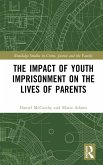It is 1960. Philip Ayrton, the Warden of Edgecliffe Detention Centre, a facility in Derbyshire for youth offenders, is inching slowly along in a quiet life. The small community which surrounds the centre, and his staff inside it, are his world. His wife Ella is a little dissatisfied, but puts on a brave face; his daughter Christine has escaped to Birmingham to study music; and his young son John is seeming more sullen and distant by the minute. The latest set of receptions at the centre includes Goole, charged with grievous bodily harm. Philip is struck by Goole's elusive and self-contained quality, but sees him as young enough to be a candidate for a one-time stay and full rehabilitation. This progressive stance is informed by Philip's background - before a lapse of belief, he had hoped to become a monk - but it is viewed with skepticism by many of his staff. Since faith deserted Philip, he has followed a more traditional path, becoming an archetypal 'grey man' - a middle manager in a quietist world. But into this suppressed sphere erupts a disturbing presence - the new 'landgirl' at the centre's farm, Minty Bates. Young, and beautiful in a painted way, she seems an emissary from the uncontrollable outside world. She has an indefinable quality which fascinates Philip, composed of defiance, vulnerability and manipulation. As their teasing connection gains in seriousness, Philip feels his compass slipping, and unruly flights of obsession and passion intrude into his discipline. But is everything as it seems? Why is Minty so sad, and yet so flippant - so emotionally out of reach? Is it him? What has it to do with Goole? Philip finds himself lost in a tangle which feels way above his head, struggling to maintain his self-control in a hall of mirrors, lurching to disaster. In Pictures on the Wall, Hugo Charteris navigates impressively the interior world of a man who is an avatar of his generation, simultaneously deep-thinking and barely self-aware. The portrait in this deceptively low-key novel of the silent roar in a grey man's head, when he is suddenly surrounded with looking-glass images which confuse and inspire him almost to the point of madness, caused Francis Hope to declare in the Observer that Charteris was 'the nearest thing this country has produced to an existential novelist'. Renowned novelist and critic David Lodge, who reviewed Pictures on the Wall when it was first published in 1963, has re-examined this brilliant novel in a new introduction written specially for this edition.
Hinweis: Dieser Artikel kann nur an eine deutsche Lieferadresse ausgeliefert werden.
Hinweis: Dieser Artikel kann nur an eine deutsche Lieferadresse ausgeliefert werden.








